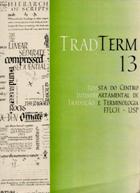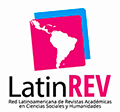Em busca de um modelo de acessibilidade audiovisual para cegos no Brasil: um projeto piloto
DOI:
https://doi.org/10.11606/issn.2317-9511.tradterm.2007.47473Keywords:
Audiovisual translation, audiodescription, accessibility, blind, visually impaired.Abstract
Despite the fact that the Law Project no. 10.098/2000 ensured to the hard of hearing and visually impaired the free access to all means of communication, it was only in 2004 that the Decree no. 5.296 determined the implementation of three systems that guaranteed the ample access of these citizens to the audiovisual medium. However, it was only in March of 2006, after two modifications, that this decree started to be amply discussed. The issue of accessibility is not a simple one for a developing country, because it implies large investments in technology and human resources. As regards the latter, it is worth asking how the training of professionals in audiovisual accessibility will happen. This article reveals the pioneering effort of a research group in audiovisual translation of the Federal University of Bahia to introduce the issue of accessibility in the academy, especially as far as the blind and visually impaired are concerned. The article reports on the results of the first phase of a pilot project (phase Salvador), which aims at elaborating an audiodescription model that can meet the needs and preferences of the Brazilian visually impaired audience.Downloads
Download data is not yet available.
Downloads
Published
2007-12-18
Issue
Section
Tradução Intralingual e Intersemiótica - Audiodescrição
License
Autores que publicam nesta revista concordam com os seguintes termos:
- Autores mantém os direitos autorais e concedem à revista o direito de primeira publicação, com o trabalho simultaneamente licenciado sob a Licença Creative Commons Attribution BY-NC-SA que permite o compartilhamento do trabalho com reconhecimento da autoria e publicação inicial nesta revista.
- Autores têm autorização para assumir contratos adicionais separadamente, para distribuição não-exclusiva da versão do trabalho publicada nesta revista (ex.: publicar em repositório institucional ou como capítulo de livro), com reconhecimento de autoria e publicação inicial nesta revista.
- Autores têm permissão e são estimulados a publicar e distribuir seu trabalho online (ex.: em repositórios institucionais ou na sua página pessoal) a qualquer ponto antes ou durante o processo editorial, já que isso pode gerar alterações produtivas, bem como aumentar o impacto e a citação do trabalho publicado (Veja O Efeito do Acesso Livre).
How to Cite
Franco, E. P. C. (2007). Em busca de um modelo de acessibilidade audiovisual para cegos no Brasil: um projeto piloto. TradTerm, 13, 171-185. https://doi.org/10.11606/issn.2317-9511.tradterm.2007.47473








